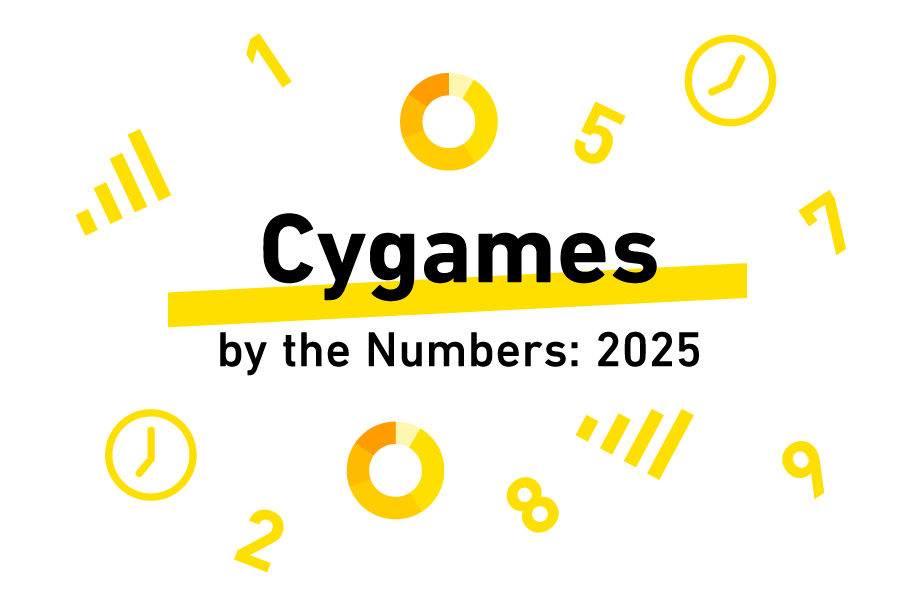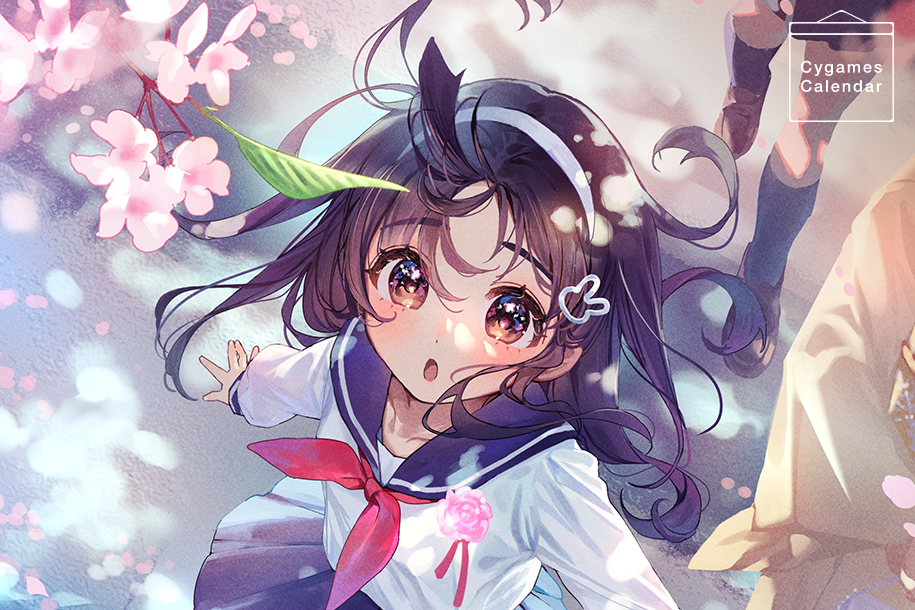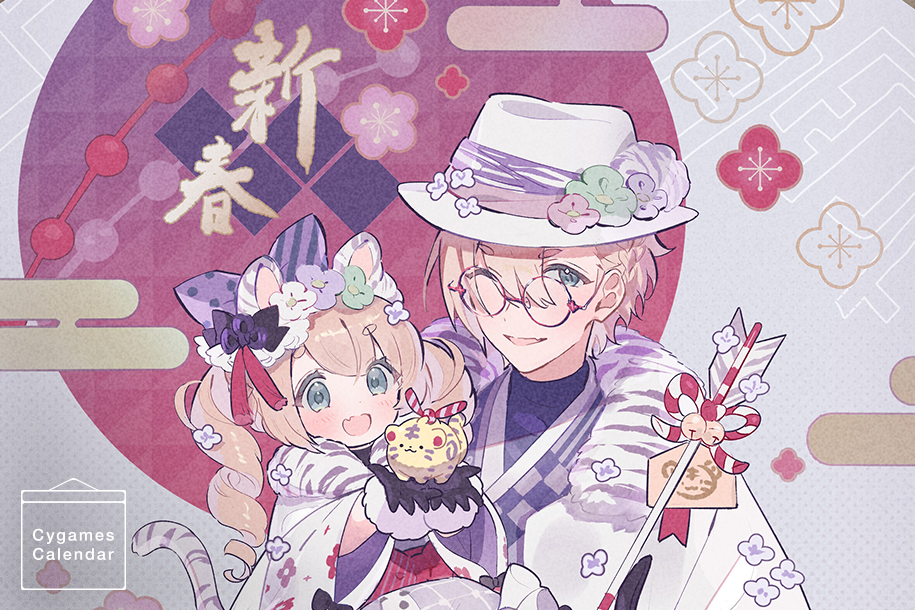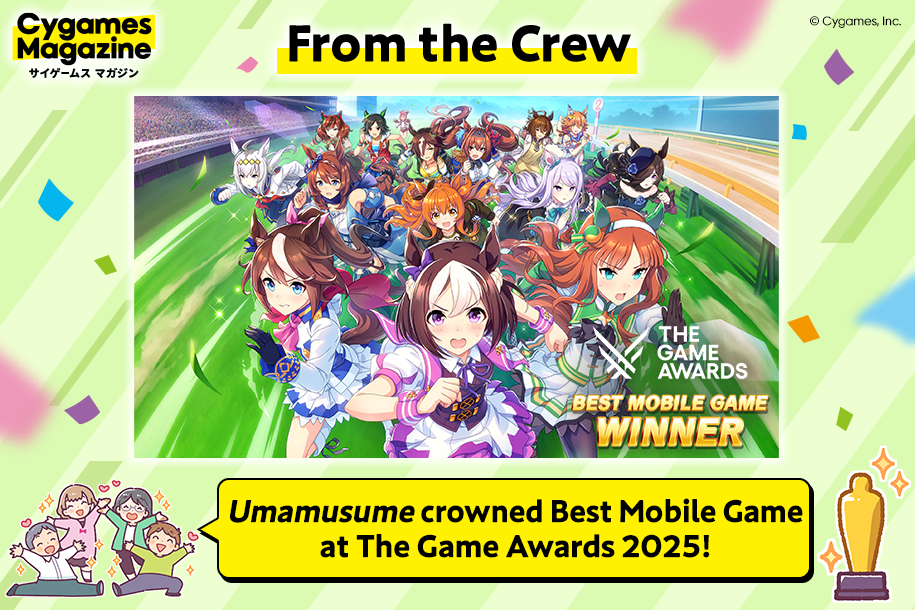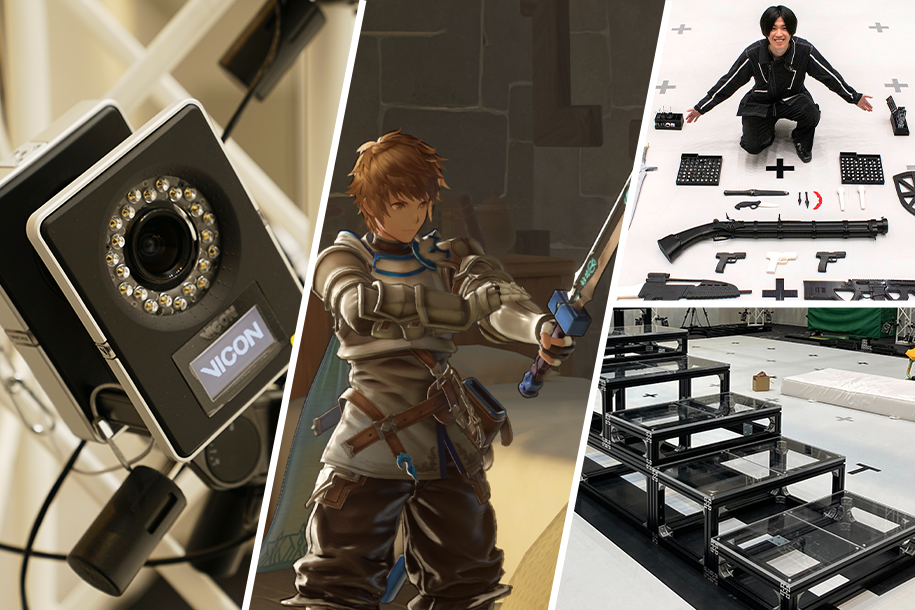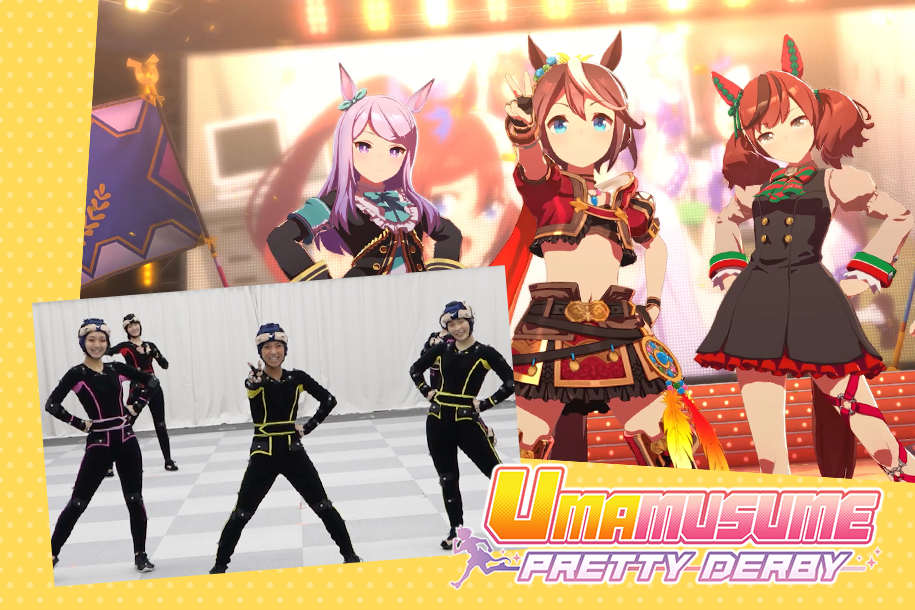Creating from Home: Founding Members of CySphere Share Their Insights
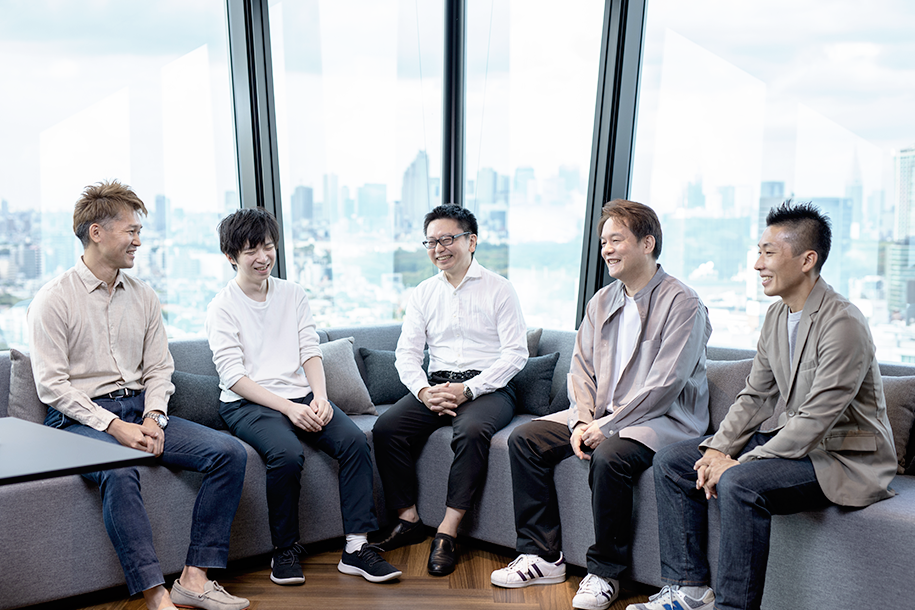
Founded in April 2021, CySphere is a subsidiary of Cygames that specializes in 3D computer graphics (3DCG). CySphere operates a fully remote business with a staff of talented people that live throughout Japan. In this interview, we talk to the president and managers of CySphere about the vision behind the company’s creation and its future.
- PresidentIto
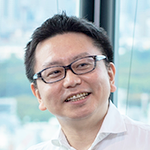
- As a former CG and art director at a major game developer, Ito has extensive experience in both leading and managing the development of several titles. After joining Cygames, he advanced through development management roles before becoming the president of CySphere.
- Character DesignIzumi
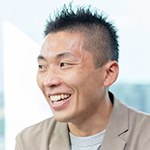
- During his time at a major game developer, Izumi gained experience in many aspects of game development, which he later applied to character design for various games and gaming machines, as well as contractor management. After joining Cygames, he worked on character modeling with the 3DCG team before becoming a manager at CySphere.
- Background DesignKomatsu
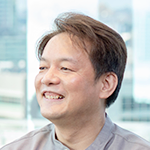
- Komatsu has contributed to a wide array of projects in console, arcade, and social network game development, with a primary focus on background design and management. After joining Cygames, he was a background design lead on the 3DCG team before becoming a manager at CySphere.
- AnimationNaito
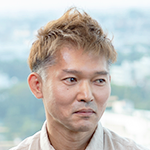
- Naito previously worked as a character animator at a major game developer before transferring to a different company and taking on a leadership role as a senior manager of the 3D department. After joining Cygames, he served as a senior designer as well as a 3DCG project lead before becoming a manager at CySphere.
- Visual EffectsKemanai
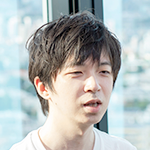
- Though his experience with game development began as a character designer for a social network game, Kemanai later transitioned into visual effect design. After joining Cygames, he was put in charge of visual effects for the 3DCG team before becoming a manager at CySphere.
A Company of Talented People From Across the Country
Please tell us a little bit about CySphere.
Ito: CySphere is a company that specializes in 3DCG production for console games, mobile games, and other platforms, striving to deliver unparalleled emotional experiences to people worldwide. Currently, CySphere is organized into four teams: Character Design, Background Design, Animation, and Visual Effects.
One of the defining features of CySphere is the company’s emphasis on remote work. Could you tell us the reasoning behind this approach?
Ito: Many companies faced challenges during the COVID-19 pandemic, which prompted them to incorporate remote work into their operations. Although they were initially apprehensive, most companies found remote work to be surprisingly feasible. Cygames was one of them.
Of course, remote work is not without its limitations, and the benefits of communicating in person can’t be overstated. That’s why Cygames assesses current trends and adapts its policy accordingly.
That said, CySphere was founded with the goal of creating an environment that embraces diverse working styles centered primarily on remote work, allowing staff to collaborate with each other from various locations. We believe that taking advantage of the merits of remote work is the key to improving efficiency.
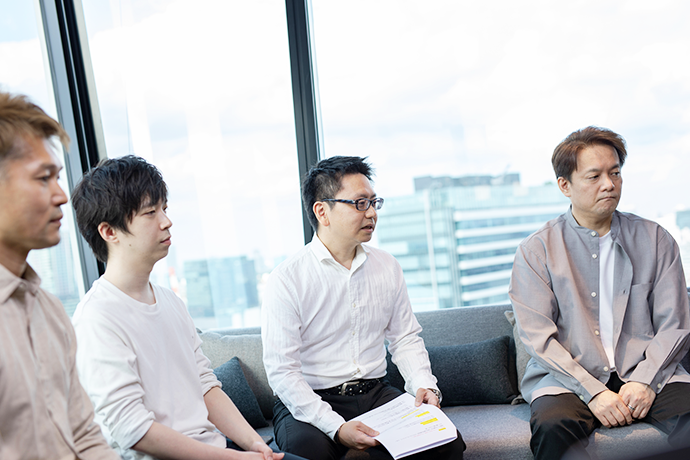
As the founding members of CySphere, was it difficult getting everyone on board with working fully remote?
Naito: In my case, I realized the potential of working remotely when I was part of Cygames after collaborating with an external partner that lived in the countryside. When the pandemic hit and we incorporated remote work, I noticed that everyone was able to maintain the same level of productivity even at home. It convinced me that people don’t have to be limited to a specific location to be productive, and that lifting such restrictions could actually expand a company’s capabilities.
Some might think there’s no merit in hiring remote employees if they can be retained as external partners, but I feel like that line of thought creates missed opportunities. When you work with other people on a project, you often have to learn the same software and workflow. Relying on outsourced work is fine, but in many cases, the contract ends when the project is completed. That means knowledge gained from that partnership can’t be carried over to the next project and, if you plan to outsource again, you’ll have to start from square one. This is why I’ve been an advocate for bringing these kinds of individuals on board as full-fledged employees—it’s a relationship that fosters mutual growth.
Ito: When I established CySphere, I asked everyone here if they’d like to join me, but I’d be lying if I said I knew at the time that Naito had these opinions on remote work. (Laughter)
Naito: See, I thought you asked me to join because you knew my stance, but I guess I was wrong. (Laughter) But after Mr. Ito shared his vision for CySphere with me, I found that meshed well with my own thoughts about work, which is why I accepted his invitation.
Kemanai: Everyone here is a former Cygames employee who was personally recruited by Mr. Ito, and we all recognize the appeal in unrestrictive styles of working and collaborating with talented creators from any location.
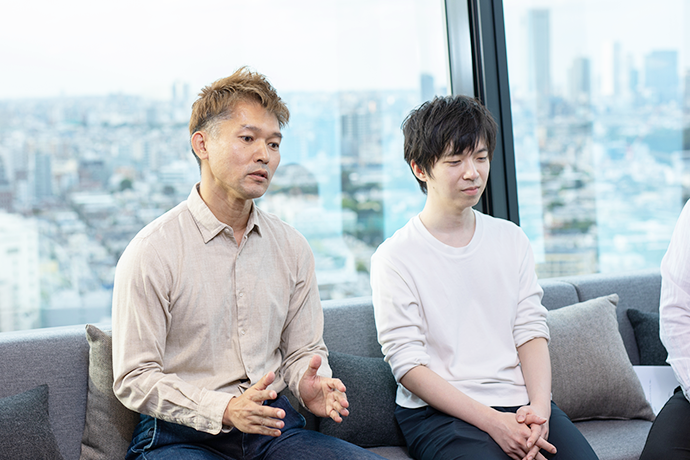
Please tell us about CySphere’s vision and philosophy, as well as the values behind them.
Ito: Our vision is to create exceptional and emotional 3DCG experiences for audiences worldwide. Obviously, 3DCG is a form of art expressed through a screen rather than a tangible thing people can reach out and touch. Because of the intangible nature of what we make, what matters most to us is leaving an impression on those who view our work. As adults, we all still remember the games that we obsessed over in our childhoods. Our goal is to create something that leaves that kind of lasting impact.
As for our philosophy, we have three principles: Assemble the best talent, embrace the spirit of challenge, and strive for excellence at work and at home.
In order to “assemble the best talent,” we leverage the advantages of remote work to gather skilled artists from across Japan and utilize their skills toward achieving our vision.
To “embrace the spirit of challenge,” we make concerted efforts to engage in new challenges, as is necessary for all artists, 3DCG or not. Technology and techniques are constantly evolving, and we believe that those who pursue innovation will see the most success.
And to “strive for excellence at work and at home,” we always encourage our staff to make the most of their private lives. One of the benefits of working remote is the personal time gained from the absence of a commute. Working in CG can be demanding at times, so we want our staff to be able to transition between their work and personal lives seamlessly, as well as maintain a healthy balance of the two.
The Benefits and Drawbacks of Working Remote
How do you approach your work on a daily basis?
Naito: At home and quietly, and that probably goes for all of us. But to keep from burning out, we allow ourselves to take short breaks outside of lunch time.
Kemanai: We often hold online meetings to stay in touch. For example, the managers set aside 15 minutes every morning to meet with each other and go over agendas for the day. Apart from that, we arrange meetings as needed if we have anything we want to discuss.
What do you think about working remote? Have there been any difficulties?
Izumi: None that have gotten in the way of our work, at least. A few departments at Cygames have already incorporated remote work into their operations, so implementing something similar at CySphere has been smooth sailing for the most part.
Komatsu: CySphere’s back office operations are taken care of by Cygames, which is largely why it’s been so seamless. They’ve been operating on a remote work system for a while now and their experience has been a great boon to us. The robust support we receive from their systems management team also gives us great peace of mind.
Naito: I think the biggest concern for creatives working from home is internet and network connectivity. I remember experiencing some connectivity issues myself during certain times of the day, and that was a problem because of the large chunks of data we manage. To address this problem, the company provided us with mobile Wi-Fi routers. Thanks to that, I haven’t had any issues since.
Izumi: We were transferring massive amounts of data when we were establishing CySphere. We typically don’t handle that much data, so an ordinary internet connection is usually enough for our day-to-day operations.
Do you think there are any aspects that could be improved?
Naito: This is just an inevitability of working remote, but I do wish there was an easier way to chat casually with other people. We sometimes talk through Slack’s Huddle function, but that requires a certain level of initiative far different from just striking up a conversation with your desk neighbor. Engaging in small talk is especially important for new team members as it helps them get a feel for the company culture.
Komatsu: I’m currently trying to do that with the two new members who’ve joined me on the background design team. We set aside around 30 minutes toward the end of every workday to not just talk about work-related tasks, but also to just chat. Being able to see who you’re talking to is just as essential as the chat itself, so we usually hold these meetings through Zoom.
Izumi: And these casual chats are open to the entire staff, so anyone can join in if they’re interested in whatever’s being talked about. (Laughter)
Kemanai: We regularly research other tools that we could try using to make communicating easier. In fact, we’re currently experimenting with a few that might improve the way we conduct remote work. CySphere is still a relatively new company, which gives us the flexibility to make decisions like this on the fly.
Komatsu: We’ve also organized several virtual get-togethers to encourage our staff to engage with each other on a more casual level. For the last one, we got the idea of having the entire team eat the same meal, so we ordered the food online and had it delivered to each person’s home. Thanks to the nationwide availability of delivery services, even our staff in Kyushu (Japan’s southernmost island) were able to participate.
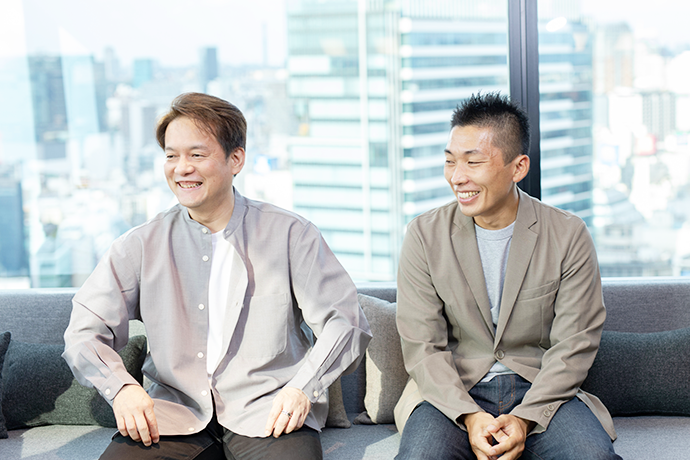
Fully Remote, From the Interview to the First Day of Work
Are interviews for new staff also conducted remotely?
Ito: Yes, they are. In fact, we hired a few of our staff without ever meeting them in person. Of course, meeting a candidate face-to-face at least once would be more reassuring. But when you recruit from across the country, not meeting is just part of the process, and I think it will only become more common in the future.
Naito: As managers, we’re involved in the interview process, and so far there haven’t been any hiccups. People have gotten used to searching for work online, and they always come prepared to showcase their work on screen, which allows everything to proceed smoothly.
Kemanai: I would say the only issues we’ve experienced are lag and figuring out when to talk so we’re not interrupting each other—the typical problems that come with video calls.
Komatsu: If anything, these little incidents actually help us identify a person’s character. (Laughter) Are they shy? Can they deal with problems calmly? The so-called shortcomings of online meetings are, in a way, positives.
Ito: I think as more and more companies shift to working remote, newer and better communication tools will be developed to meet the demand for more effective ways to connect.
By the way, who lives the farthest away from the rest of the team?
Komatsu: Probably the member that lives in Kyushu. But that person in particular was an intern at Cygames’s Tokyo office, so their experience is probably atypical.
Kemanai: I live in the metropolitan Tokyo area, but I’m originally from Miyagi Prefecture. Down the road, I’d like to go back home, and I think it’s great that the work style at CySphere gives me the option to keep working while living where I want. It’d allow me to try my hand at creating jobs in the countryside as well.
Currently, CySphere only recruits within Japan, but are you interested in someday welcoming international talent onto the team?
Ito: Yes, in the future we’d like to consider hiring talent from overseas to join our team. We’ve already received a few applications from artists outside of Japan. However, there are a number of potential issues standing in our way, such as figuring out time zone differences and work visas, as well as the import restrictions various countries have regarding the shipping of PCs and monitors. Until we find a way to clear these obstacles, we’ll have to limit our search to domestic applicants.
Has working remote actually improved your personal life?
You mentioned striving for the best in your professional and personal lives. Has working remote helped you achieve a more fulfilling life?
Naito: Now that I don’t have to commute, I have a lot more time to spend with my family—that means having plenty of time to talk to my child during dinner.
Izumi: Remote work is definitely a great thing for families raising children. If commuting to the office used to take you about two hours and you work 20 days a month, that’s 40 hours you can now put towards doing something else. It really adds up.
Kemanai: I’m the only single guy here, so unfortunately I don’t have anyone to share that extra time with… (Laughter) But I still benefit, of course, especially on weekdays, since remote work makes it easier to manage my time and organize my schedule. It’ll become easier to travel once the pandemic is over, which could make my weekends more fulfilling.
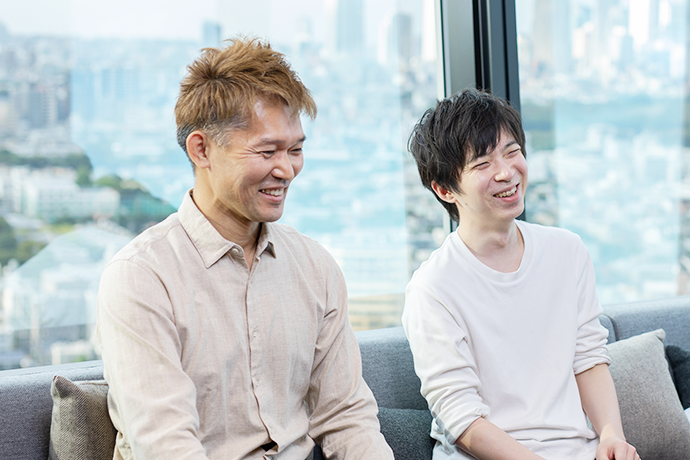
It seems there are plenty of benefits to working remote. Can you think of any issues you might encounter going forward?
Ito: As CySphere continues to grow, I think we’ll need to develop a mentoring system to prepare our staff for the tasks they’ll be taking on, especially for younger hires without much experience. Currently, our staff consists mostly of people with substantial creative and professional experience, but down the line we would like to hire and train newcomers to the industry as well. Of course, we’ll need to be able to support these creators and their career paths remotely, which is an area we’ll have to experiment and improve through trial and error.
The Future of CySphere and the Ideal Team Member
Please tell us about CySphere’s future prospects.
Ito: The expansion of CySphere is a top priority, first and foremost. As of now, there are a total of 13 members on the CySphere team including board members, but I’m hoping we can increase that to 20 within the fiscal year, and to around 80 by 2023. Once we grow to a decent size, we’ll be able to take on external projects while handling internal projects from Cygames, and foster an environment that enables talent to attract more talent. Our long-term goal is to grow our team to approximately 200-300 members. For now, we’ll be focusing on recruiting artists with professional experience, but starting in 2023, we’ll be opening up recruitment to include new graduates.
One of the reasons behind establishing CySphere as an independent entity, rather than an internal department of Cygames, was to enable us to someday work on projects from other companies. For the time being, we’ll be focusing on Cygames projects, but ultimately we want to expand our scope beyond Cygames, and perhaps even beyond the CyberAgent group.
Is CySphere looking to prioritize mobile or console game development?
Ito: To be honest, we don’t plan on prioritizing one over the other. That said, knowledge in console game production can be beneficial for mobile game development. By pursuing the latest technologies and techniques on the console side of development, we can gain know-how and share it with our team, who can then apply that knowledge to mobile games.
Kemanai: Some members of our staff have explicitly stated they want to work on console games, and I’d say most of us have a strong idea of exactly what we want to do.
Ito: Moving forward, I’d like to carefully consider which projects and styles best suit the 3DCG artists we bring on board, and ensure that they’re able to work on tasks that complement their strengths. There’s no guarantee we’ll find a perfect match every time, but artists excel when they’re passionate about what they’re working on, which makes matching artists to projects they’re suited for all the more important.
What qualities do you look for in a prospective team member?
Naito: As the head of the animation department, I want someone who’s genuinely interested in animation and committed to making it. Even better if they’re also persistent. The work can be overwhelming, but animation is an incredibly crucial aspect of development. A single motion can significantly alter meaning and even reveal a character’s personality. I’m looking for individuals with tenacity and a passion for the craft.
Kemanai: Because implementing visual effects comes late in the development process, I’d prefer to collaborate with someone who is proactive. Waiting for work can lead to delays and subpar results, so staying ahead of things and taking the initiative is an essential quality. The various events and emotions in a game can’t be properly conveyed without visual effects, so an enthusiastic person who’s always researching and applying what they’ve learned is the kind of person I’d like to work with.
Komatsu: Backgrounds play a unique role in conveying the world of a game or film to the audience. A viewer’s first impression—whether they understand the world and are interested in it—is a driving factor in whether or not they decide to engage with it. I think someone who has a passion for games and film and is eager to create these worlds would be a perfect fit for our team.
Izumi: A person who actively participates in the character design process would be a great addition—someone who’s enthusiastic about sharing how a design could be improved, no matter how small. It’s common for an artist to become attached to the character they’re modeling, but I’d want our artists to consider whether their character will resonate with audiences. Personally speaking, I also like people who are confident enough to talk about the skills they excel in.
Naito: I’d also like for generalists to join our company, people that can be involved throughout the different stages of production. Ideally, they would have a wide breadth of knowledge about each step of 3DCG development and be able to collaborate and negotiate with multiple teams.
Ito: As someone in a leadership position, I think having respect for the people you work with is a must for anyone looking to join us. Because we work remotely, we use Slack and other text-based forms of communication to get in touch with each other. If you lack regard for your coworkers, it will show in how you communicate with them, and it will likely lead to discord within the team. I’d like for people who genuinely respect their coworkers and are capable of showing that through their daily communication to join us at CySphere.
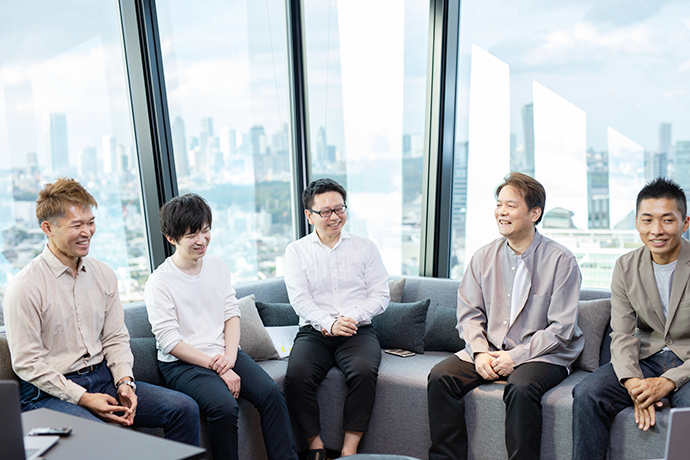
And that wraps up our talk with the founding members of CySphere.
CySphere is currently looking for new and talented staff to join their roster. If you are interested in becoming part of the CySphere team, please visit their official site.
Official CySphere Website


